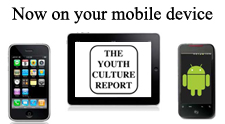How We Can Reach Students In A Post-Christian Culture
How We Can Reach Students In A Post-Christian Culture
By: Steven Kozak
My guess is that, like me, you have been there. That time when a student—maybe your own kid—asked you a question that you couldn’t answer. Now I don’t mean a question about calculus, thermodynamics, microbiology, or even who the 11th president of the United States was (It was James Polk, and yes I looked it up). I am not talking about school subjects. I am talking about the questions that are considered to be some of life’s most important, most fundamental questions. Or maybe in a shining moment of brilliance, you eloquently and perfectly shared the truth of the gospel only for it to be met with frustration and accusations of narrow-mindedness and hate.
We have all had those moments. A student finally opens up and dares to ask the hard question about their faith or expresses doubt and you have nothing. Not a coherent sentence, thought, or even a word to offer them; or what we do say is so easily dismissed. Yes, there was a time, when the advice to read the Bible, spend time in prayer, or even to ignore doubts altogether might have been sufficient. And yes, there was a time when it was enough to simply declare the truth, objective morality, and timeless biblical values. That time has long since passed.
For the first time in U.S. history, students are growing up in a post-Christian culture. The largest and fastest growing religious identity is now made up of those who pledge no religious affiliation at all. And according to Barna the younger the generation, the more post-Christian it becomes. Students of Generation Z are confronted with issues earlier generations never imagined. Many of them are standing at the crossroads between a church that appears completely out of touch with culture and a world pressuring them to conform to twenty-first-century social norms of relativism and postmodern thinking.
What is the result? According to Barna, only 4% of students maintain a biblical worldview. Let that soak in for a minute. Only 4%.
But are we all that surprised? On September 22, 1987, aired the first episode of the soon to be
hit series Full House. Although the storyline differed slightly from the norm, the show boasted traditional family values, no sexual content, and no political or social agendas. It was a show the entire family could enjoy without fear of filtering inappropriate content. Only seven years later we were introduced to Friends. For ten years the world sat for thirty minutes a week to watch our culture transform before our eyes. This story of six friends in their twenty-somethings made premarital sex, homosexuality, excessive drinking, and the refusal to grow up acceptable in western culture. Television and media continued pushing the envelope opening the doors for show’s like the 2016 Netflix production, 13 Reasons Why. A show that was widely popular among students that normalized the display of things like rape, suicide, pornography, and issues of gender identity—and all, on demand.
What do we do?
We prepare. We train. We educate ourselves. As leaders and parents of youth, we own the responsibility of discipling our teens. Therefore we own the responsibility to best prepare ourselves so that we can best prepare our students.
Over the last eleven years, I have taught students apologetics and worldview training in the classroom from the laid-back suburbs of Detroit to the cultural epicenter of Los Angeles. The students may dress different, act different, have different experiences, and sometimes very different challenges. But when it comes to their faith, the questions, concerns, and doubts are all the same. My new book, The Truth Is, is the product of classroom trial and error, many conversations with students, parents, and pastors, and my own quest to discover the truth of Jesus Christ.
What I discovered was that youth ministry has to be more than just fun games, great spaces, and safe places to hang out. Youth ministry has to be a training ground for students to learn to successfully and lovingly engage their world with the gospel. The training of sharing one’s faith, the practice of apologetics, and the intentionality of forming great relationships should be woven through the DNA of every youth group.
The Truth Is helps you do just that in four specific and practical ways.
First, it elevates expectations. Don’t be afraid to demand more of your students. They will rise to the occasion. Second, it helps you be more equipped so you can best equip your students. It is time to explore the tough questions, students are asking—so don’t back down. Third, engage students in real-life situations. This book will help you craft the right kind of conversations that will simulate the kinds of questions and objections they will face beyond the church walls. And finally, you have to embody the same attitude and behavior of a disciple. If you want your students to learn. You have to learn too—and model what you are learning.
The Truth Is guides you and your students through the foundational truths of reality and piece by piece build a comprehensive case for the Christian faith. Along the way, I addressed some of the most fundamental questions students are asking like, why evil? And can I trust the Bible? It challenges you and your students to take a step back and see the world through the eyes of Christ while at the same time encourages you to tap into the power of relationships to best communicate the gospel the way Jesus did. My goal was to make this book academic yet accessible, thought-provoking yet hands on.
Maybe now, more than ever, there is an incredible urgency to make Jesus known in youth culture. But also, maybe now, more than ever, there is an incredible opportunity to successfully reach our students with the truth of the gospel. The future of the church belongs to our students, but it is our job to train them and hand if off well.
And you can begin to do that with The Truth Is: Sharing Jesus With Confidence, Conviction, and Compassion.
To purchase visit:
http://stevenkozak.com/thetruthis or find it on Amazon.
Steve currently serves as the Executive Director of AwanaYM. Previously, Steve spent over a decade teaching high school thoeology and apologetics from Detroit to LA. Steve holds a Masters degree in Theology from Moody Theological Seminary and a Masters in Christian Apologetics from Biola University. Steve is also an adjunct professor at Trinity International University. He speaks and writes on youth ministry, youth culture and apologetics. He resides in Chicago, IL with his wife and four children.






